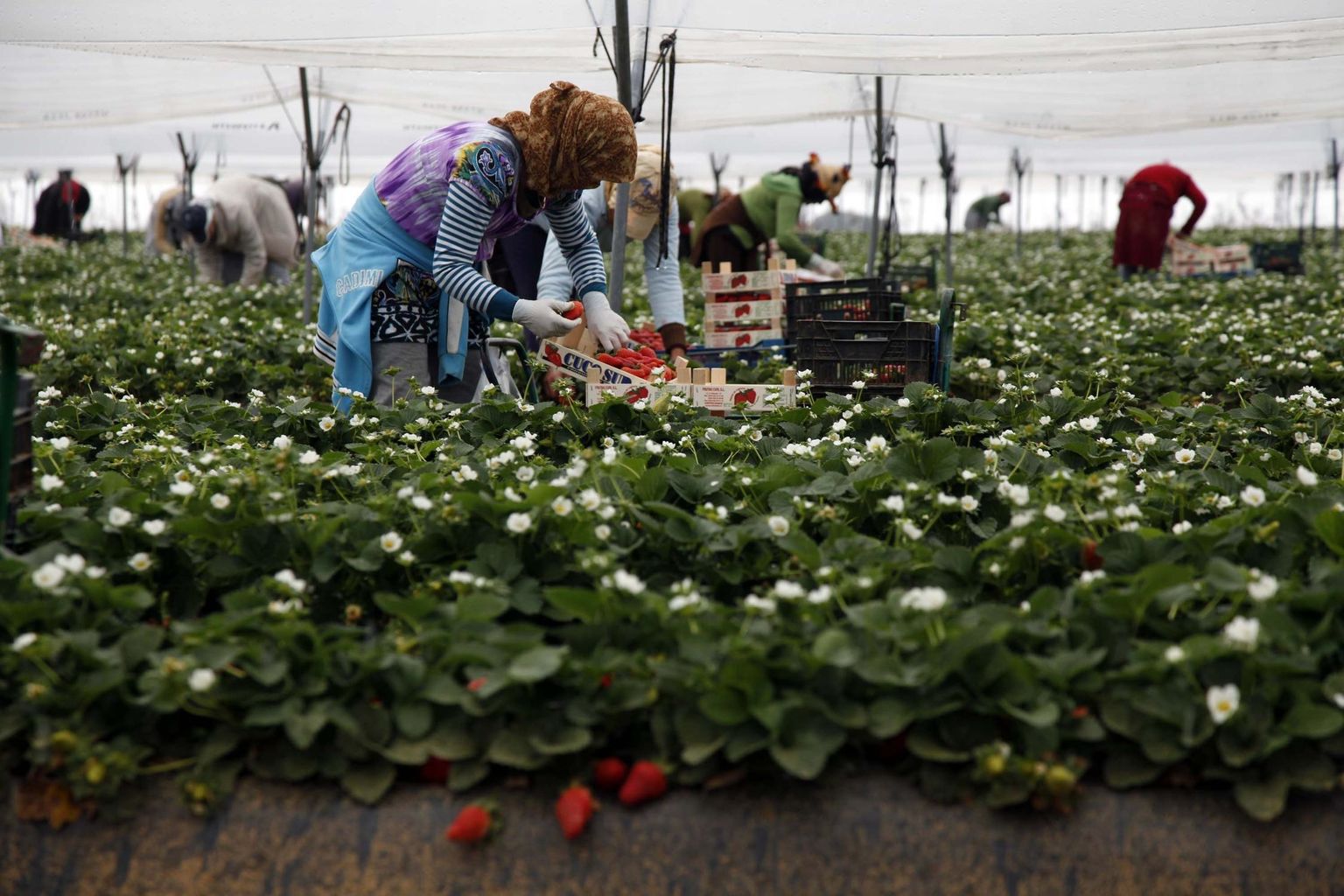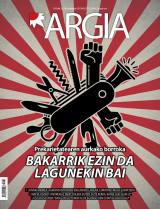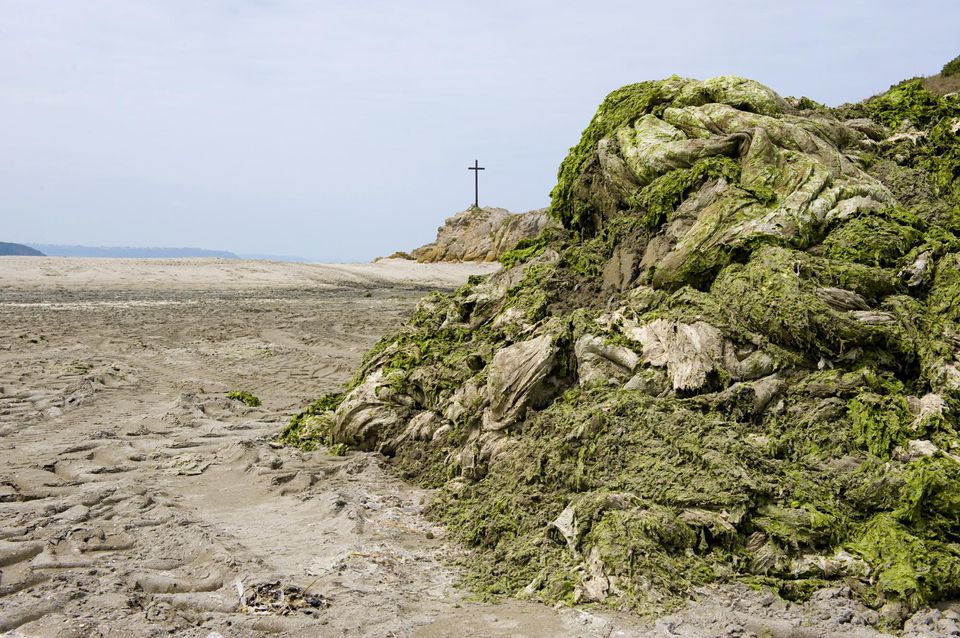Slave labor is needed to produce cheap food for the European mass
- A chicken cheaper than a glass of wine, a sausage that costs nothing, a strawberry that will cost you less than the local apple although you come from Andalusia or Morocco... How can they be at such affordable prices in the supermarket? These low cost foods conceal not only the lobbying that distributors do to small farmers, but also the misery wages of thousands of workers working in the industrial agriculture chain. They work as slaves in the Mediterranean... but also in the rich Germany.

“With the rules of the game of the neoliberal economy, for food to be cheap there has to be chubasqueo and precariousness”, with that transparent truth enters the issue 30 of the journal Food Sovereignty, clarifying that chubasqueo and precariousness applies to ecosystems, animals, plants, cultures and, without a doubt, people. It offers concrete examples of crushing workers in cheap food production and processing chains for European citizens.
According to the publication of the alterglobalist organization GRAIN and the Vía Campesina movement in Spanish, oppression shows different forms according to the gender or origin of the people who suffer it and is very different in the rich North or the poor South of the world, “but today because of migration and globalization, there are northern areas in the south and south in the north”. Because who would expect to find the working conditions that are also being pursued in Greece in such a rich Germany?
Guido Grüner, head of ALSO in Lower Saxony, has presented "his work as a slave in the German meat industry". ALSO has been working for 35 years to denounce and change the living conditions of unemployed and precarious people in Germany, which is called social status. They began working with farmers in the region in 2008, when they went on a supply strike for large milk buyers. They offer legal advice and support to workers in the industrial food chain.
Most of those seeking assistance in Lower Saxony are workers from large slaughterhouses, chickens for famous brands (Heidemark, PHW/Wiesenhof...), pigs (Danish Crown, Tönnies, Vion, Westfleisch) or calves in meat production. These companies export to the whole world and in Germany sell their own meats Aldi, Edeka, Lidl, Rewe and other supermarkets, controlling with their low prices more than 90% of the retail sales.
In 2013, following protests by workers with the help of trade unions, Christian groups, etc., the German State took measures in the regulation of work, including meat industry workers: setting the minimum wage at 9 euros/hour, ensuring shower and other elements in collective households... “but after these years we can say – says Grüner – that these standards are not met either.” With the advent of the 21st century, the owner is easier than ever to use any gap.
To begin with, workers have to go through a probationary period in which they are unprotected for fear of the least complaint being presented or of moving to the street in case of illness. But once the contract has been achieved, Grüner says that no one controls the working hours, which ask workers for advice who enter more than 200 hours a month, “often 240 and up to 280”, who work six days a week 14 hours. Not in the needs of all kinds, in the refrigerators, in which great loads move, in the strong rhythms...
Since the worker is not legally assigned to large companies, but to temporary employment contracts, or to a subcontract of a contract ... who should complain to, ask for sick leave or ask about the exact time? There are many who, in exchange for signing a contract, are obliged to pay EUR 500 to the manager of the company. And how do you guarantee the minimum wage if my master calculates it for hours but according to the specimens or kilos produced? Who controls the prices of rooms rented by companies to workers who are forced to live in groups abroad?
The pulp of Desgarai strawberries
Gruido Grüner explained that the activity of workers in the vaccination and transport of birds is even more regrettable. Lower Saxony reared more than 300 million birds each year in large farms that must be moved to industrial slaughterhouses.
Carvings transported in vans and microbuses go from farm to cottage to the hard task of capturing thousands of birds, riding cages and loading in trucks, usually without proper clothing, working by hand in dark warehouses full of dust and ammonia of manure. Being a low-skilled job, workers also suffer the worst conditions, often without a contract, living in collective housing assigned by their master, directly disregarding the face of the humpback... It is no coincidence that most of the crews involved in the transport of birds are made up of immigrants.
In addition to German, the dossier of Soberania Occupied analyses two more cases in Europe: "Seen from within the food handling centers of Almeria," wrote an employee of the center, L.G. under signature. Juana Moreno Nieto and Emmanuelle Helliok “female day laborers working in strawberries from Andalusia and Morocco”. University professors Carlos de Castro, Alessandra Corrado and Domenico Perrotta have explained how “migration is a key component for globalized supply chains”.
The red strawberries that are produced and consumed outside the time – at the end of March kaletarras will be fed up with them, even though the orchard and the caves here will then begin to flourish – are essentially an explanation of the global industrialised production of food. Most European producers, including those working with the most efficient greenhouses, are in crisis in the face of competition from strawberry growing in Huelva in Andalusia and Morocco.
Regarding the breeding of strawberries that we will find in the superretas, a highly technical agricultural model has been organized, prepared for export, with a high cost of production: pesticides, chemical fertilizers, plastics of greenhouse and other infrastructures, patents of fertile plants… and very linked to the large distribution chains of super and hipers.
But it also requires a lot of labor. This year, therefore, there will also be 60,000 seasonal workers in Huelva and 20,000 in northern Morocco. Mostly women. Many of those necessary for the planting, conservation and storage of strawberries in the approximately 10,000 hectares of greenhouses in Huelva have arrived from Morocco, according to the treatment signed in 2007 by the company of strawberry, the Spanish Employment Agency and the Moroccan authorities, who guarantee their return to Morocco after the season.
Those big strawberries of the super carry the sweat of the tanned women, as well as the pesticide cocktail.
Agroindustriaren sektoreaz informatzeko orduan, “benetako omertà” egoeran kausitzen dira kazetari bretoiak. Inork ez du hitz egin nahi eta hitz eginez gero presioak, mehatxuak, auzibideak zein zentsurak dituzte ordainean. Sektore indartsua delako... [+]






















